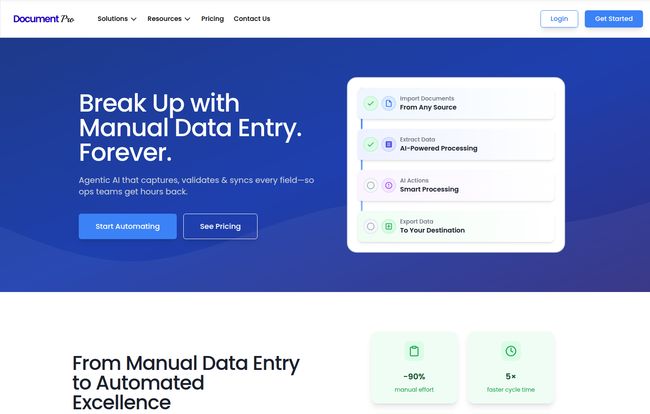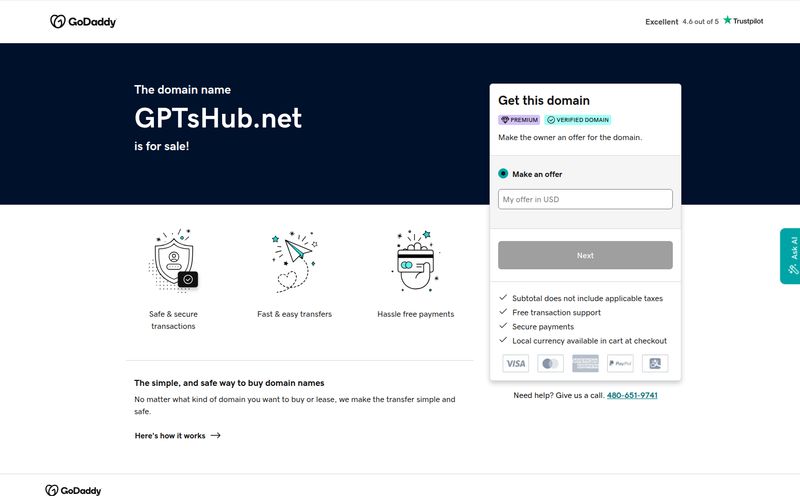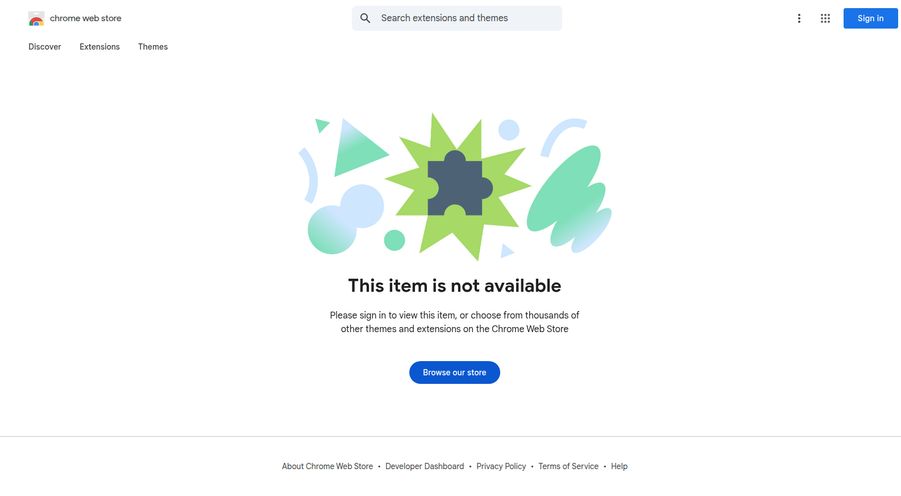If you’ve ever run a business, or even just managed a department, you’ve felt the soul-crushing dread of manual data entry. It’s the digital equivalent of digging a ditch with a spoon. You know it’s necessary—invoices need to be paid, orders need to be processed, data needs to be… well, data’d. But every minute spent keying in numbers from a PDF is a minute you’re not spending on growing the business.
For years, we’ve been promised a savior in the form of automation. And for years, most of the solutions have been kinda clunky. Basic OCR that gets half the text wrong, complicated software that needs an IT degree to set up. But the game is changing, thanks to AI. I've been keeping my ear to the ground, and one name that keeps popping up is DocumentPro. They’re making some pretty big promises about killing manual data entry for good. So, I decided to take a look under the hood and see if it’s all just marketing fluff or the real deal.
So, What Exactly Is DocumentPro?
At its heart, DocumentPro is an AI-powered platform designed to pull information out of your documents automatically. Think of it as a super-smart assistant who can read any invoice, purchase order, or scanned form you throw at it, understand what’s important, and then neatly organize that information for you. It’s not just about turning a picture of a document into text; it’s about understanding the context. It knows that “Total Due” is the number you care about on an invoice, and that “PO-12345” is the purchase order number.

Visit DocumentPro
It’s designed to slot right into your existing workflow. You can feed it documents via email, a direct upload, or even connect it to your Google Drive. It then chews through them, extracts the data you need, and can fire it off to other systems like QuickBooks or any app you’ve connected via its API. The whole idea is to break the chain of: Print PDF -> Manually type into spreadsheet -> Re-check for typos -> Finally use the data.
The Big Promises: Can It Really Cut Work by 90%?
Okay, let's talk about the giant number on their homepage: "Reduces manual effort by up to 90%." As a seasoned SEO and digital guy, I’m naturally skeptical of big, round numbers like that. It’s like when a product promises to make you a millionaire overnight. Sure, Jan.
But in this case… I can actually see it. Think about the accounts payable process. An invoice comes in. Someone opens it, finds the vendor name, the invoice number, the line items, the total amount, the due date. They manually key all of this into QuickBooks or an Excel sheet. This could take, what, 5-10 minutes per invoice if you're quick and don't get distracted by a rogue cat video? If DocumentPro can ingest that same invoice and have the data ready for a one-click approval in under a minute, you’re looking at a massive time saving. Do that for 100 invoices a month, and the hours really start to stack up.
It's not just about time, either. It’s about accuracy. I dont know about you, but after typing in the tenth invoice of the day, my eyes start to glaze over. A '3' starts to look like an '8'. That’s how you end up overpaying a supplier. The AI doesn’t get bored or tired. This isn’t just about efficiency; its about de-risking your operations.
"Exactly what I'm looking for. I can now spend more time managing my business instead of being a data entry clerk for my own business."
- Ayushi S., Software Engineer
Let's Talk Money: The DocumentPro Pricing Plans
Alright, this is where things get interesting. The make-or-break for any tool is the price tag. When I was digging around, I actually found two slightly different pricing structures on their site, which can happen during website updates. I’m going to focus on the one from their dedicated pricing page, as it seems the most current. It’s a credit-based system, which is pretty common for AI services.
Think of credits like tokens at an arcade. Each action, like parsing a page or an email, costs a certain number of credits. Here's a breakdown of the main plans:
| Plan Name | Price | Credits per Month | Key Features |
|---|---|---|---|
| Free Plan | $0 / month | 20 | A good way to test the waters. |
| Standard | $49 / month | 1,000 | API & Webhook Access, Unlimited Workflows, 50 multi-page docs. |
| Enterprise | Custom | Custom Volume | Fine-tuning, Custom Integrations, SLAs. |
The Free plan is… well, free. 20 credits won’t get you far, but it's more than enough to upload a few test documents and see if the magic happens. The Standard plan at $49 for 1,000 credits seems like the sweet spot for many small to medium businesses. If a standard invoice parse is, say, 2-3 credits, you're looking at processing several hundred documents a month for a very reasonable price. The Enterprise plan is for the big players who need custom models and guaranteed uptime.
The Good and The Not-So-Good
No tool is perfect, right? After playing around and reading the documentation, here's my honest take.
The Things I Really Like
The sheer potential for time savings is obviously the biggest plus. But more than that, I like the flexibility. The fact that it can connect to pretty much anything via webhooks and an API means you’re not locked into their ecosystem. You can build some genuinely powerful custom workflows. The ability to train custom AI models on the Enterprise plan is also a huge deal for businesses with very specific or weird document formats. That moves it from a simple tool to a proper platform.
A Few Things to Keep in Mind
The credit-based pricing, while fair, means you have to keep an eye on your usage. If you have a sudden influx of documents, you could burn through your credits faster than expected. It’s not a flat-rate, all-you-can-eat buffet. Also, some of the really powerful features, like the fine-tuned AI models, are locked away in the Enterprise plan, which is understandable but something to be aware of. Lastly, I saw a note that the checkbox reader is a bit more expensive credit-wise, so if your business relies on a lot of checkbox forms, you’ll want to factor that into your cost calculations.
Who Should Be Using DocumentPro?
This isn't for everyone. If you're a solo freelancer who sends three invoices a month, this is probably overkill. You can handle that yourself.
But if you are:
- An accounts payable department drowning in supplier invoices.
- An e-commerce business processing hundreds of purchase orders.
- A logistics company managing bills of lading and shipping documents.
- Any organization that has a predictable, high-volume flow of structured or semi-structured documents.
…then yes, you are exactly who this tool was built for. It’s for the business that has recognized manual data entry as a bottleneck and a genuine operational cost.
Frequently Asked Questions
Why not just use ChatGPT or an API to build this myself?
You could! If you have a developer on hand and time to burn, you could rig something up with an LLM API. But what DocumentPro gives you is a ready-made, secure, and supported platform. You're not just paying for the AI; you're paying for the user interface, the pre-built integrations (like QuickBooks), the parsers, the security, and the simple fact that you don't have to maintain it yourself. For most businesses, that's a much better deal.
How secure is my company's data?
This is a big one. According to their site, they take security seriously. They use industry-standard security practices and provide options for things like Data Retention Agreements on higher-tier plans. As with any cloud service, you should review their security and privacy policies, but they appear to be built for business use, where security is non-negotiable.
What are these 'credits' you mentioned?
Credits are the currency of DocumentPro. You use them to pay for actions. For example, processing one page of a document might cost 1 credit, and using a more advanced AI model might cost a few more. This pay-for-what-you-use model can be more cost-effective than a high flat fee if your document volume varies.
Do my unused credits roll over to the next month?
Based on the FAQ on their pricing page, it appears that credits do not roll over. This is a pretty standard policy for credit-based SaaS products, but it’s an important detail to know. You'll want to pick a plan that closely matches your expected monthly volume.
Is this better than a simple OCR tool?
Yes, significantly. A simple OCR (Optical Character Recognition) tool just converts an image of text into machine-readable text. It doesn't understand what that text means. DocumentPro is what the industry calls an IDP (Intelligent Document Processing) platform. It uses AI to not only read the text but also to identify and classify the data fields, which is a much more powerful capability.
My Final Verdict: Is DocumentPro a Go?
After digging in, I'm genuinely impressed. DocumentPro isn't just another overhyped AI gadget. It's a practical, well-designed solution to a very real and very annoying business problem. It’s a tool that pays for itself not just in hard dollars saved on man-hours, but in the softer currency of accuracy, speed, and freeing up your team to do more valuable work.
If you're feeling the pain of manual document processing, I’d say giving their free trial a spin is a no-brainer. Upload a few of your most common documents and see how it performs. You might just find that the future of data entry is already here, and it's a lot less tedious than you thought.



